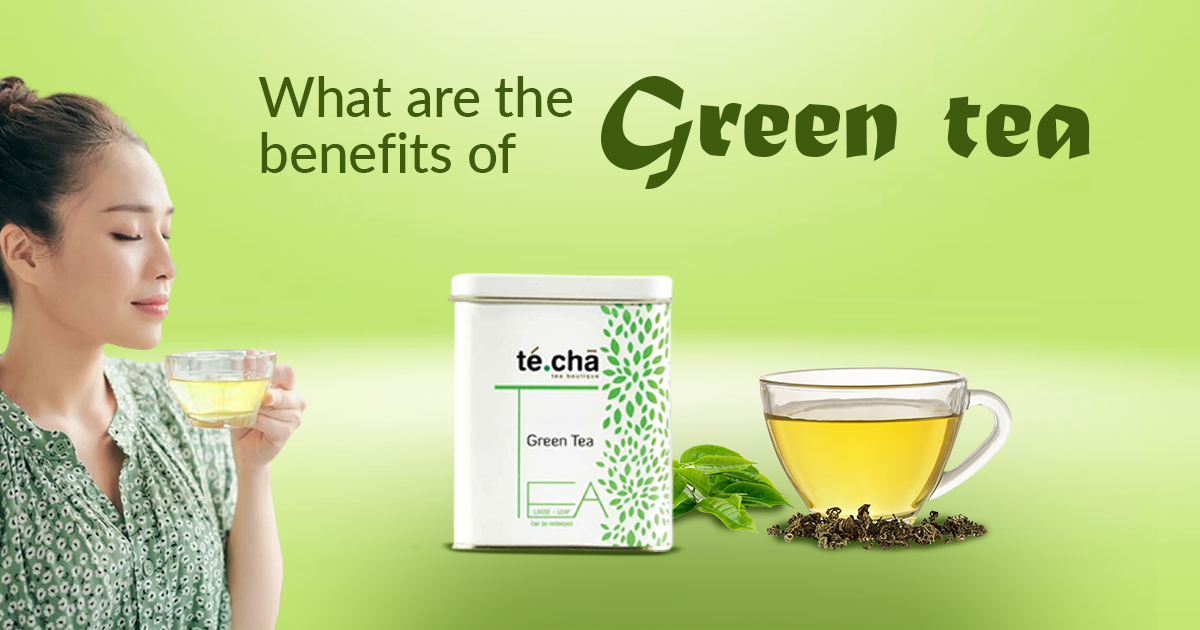In the vast world of tea, two varieties reign supreme: green tea and black tea. Both these teas have gained popularity worldwide for their distinctive flavors and potential health benefits. But what sets them apart? Are there any significant differences between the two? In this comprehensive guide, we will delve into the unique characteristics of green tea and black tea, exploring their diverse health benefits and shedding light on which one may be more suitable for weight loss. So, grab a cup of your favorite brew and let's explore the world of green tea vs black tea.
Understanding the Origins and Processing Methods
Green tea and black tea both originate from the leaves of the Camellia sinensis plant. However, their distinct characteristics are a result of different processing methods. Green tea leaves are minimally processed and undergo minimal oxidation, while black tea leaves undergo full oxidation, resulting in a darker hue and more robust flavor.
Green Tea: A Delicate Elixir of AntioxidantsGreen tea is known for its vibrant green color and delicate flavor. It is produced by steaming or pan-frying fresh tea leaves to prevent oxidation. This minimal processing allows green tea to retain high levels of antioxidants, such as EGCG (epigallocatechin gallate), which has been linked to various health benefits, including cancer prevention and cardiovascular support.
The natural preservation of antioxidants in green tea makes it an excellent choice for those seeking a healthful beverage. The polyphenols and catechins found in green tea offer potent antioxidant properties, helping to protect the body against oxidative stress and inflammation.
Black Tea: Bold and Full-BodiedOn the other end of the spectrum, we have black tea—a rich, full-bodied brew that undergoes complete oxidation. The leaves of black tea turn dark and develop a strong flavor profile during the oxidation process. While black tea may not contain as many antioxidants as green tea, it still offers numerous health benefits.
Black tea is a great source of flavonoids, which are beneficial plant compounds known for their antioxidant and anti-inflammatory properties. These compounds contribute to the potential health benefits of black tea, such as supporting heart health and improving blood flow to the brain.
Caffeine Content: Green Tea vs Black Tea
Caffeine content is often a significant consideration when choosing between green tea and black tea. While both teas contain caffeine, the levels differ, making them suitable for various preferences and lifestyles.
Green Tea: A Gentle Energy BoostGreen tea contains less caffeine than black tea, making it a favorable choice for those seeking a milder energy boost. On average, an 8-ounce cup of green tea contains between 30 and 50 milligrams of caffeine, which is about a quarter of the caffeine content found in a cup of coffee. This lower caffeine content allows for a more subtle yet sustained energy lift without the jitters often associated with higher caffeine consumption.
The caffeine in green tea also works in synergy with another compound called L-theanine, which has calming effects on the brain. This unique combination promotes a state of alertness and focus while inducing a sense of relaxation and reducing anxiety.
Black Tea: A Bolder BrewIn comparison, black tea contains a higher amount of caffeine than green tea, but still less than a typical cup of coffee. An 8-ounce cup of black tea typically contains between 42 and 72 milligrams of caffeine. This moderate caffeine content can provide an energizing effect without overwhelming the system.
Black tea's caffeine content can be an advantage for those seeking a robust, invigorating beverage to kickstart their day. However, it is important to note that individuals who are sensitive to caffeine should moderate their consumption to avoid any potential side effects, such as restlessness or disrupted sleep patterns.
Weight Loss: Which Tea Takes the Crown?
Beyond their taste and caffeine content, many individuals turn to green tea and black tea for their potential weight loss benefits. While both teas offer certain advantages in this regard, it is essential to understand the nuances and consider other lifestyle factors when incorporating them into a weight loss regimen.
Green Tea: Metabolism Booster and Fat BurnerGreen tea has gained a reputation as a weight loss aid due to its unique composition of bioactive compounds. One such compound is EGCG, which has been shown to increase metabolism and enhance fat oxidation. Green tea's thermogenic properties may contribute to modest weight loss when combined with a balanced diet and regular exercise.
Additionally, green tea's ability to support weight loss may be attributed to its impact on appetite and satiety. Some studies suggest that green tea can help reduce food cravings and promote feelings of fullness, potentially leading to reduced calorie intake.
Black Tea: Supporting a Healthy LifestyleWhile black tea may not be as widely associated with weight loss as its green counterpart, it still offers potential benefits for those on a weight loss journey. Black tea contains polyphenols, which have been linked to weight management and improved body composition.
Moreover, black tea's bold flavor and moderate caffeine content can provide a satisfying alternative to high-calorie beverages, such as sugary sodas or creamy lattes. By substituting these calorie-dense options with a cup of black tea, individuals can reduce their overall calorie intake and potentially support their weight loss goals.
Additional Health Benefits of Green Tea and Black Tea
Beyond weight loss, both green tea and black tea have been studied extensively for their potential health benefits. Let's explore some of the notable advantages offered by these teas.
Green Tea: A Potent Elixir for WellnessGreen tea's rich antioxidant profile contributes to its potential health-boosting properties. The high concentration of EGCG in green tea has been associated with a reduced risk of chronic diseases, including certain types of cancer, cardiovascular conditions, and neurodegenerative disorders. EGCG's powerful antioxidant and anti-inflammatory effects play a significant role in protecting the body's cells from damage and promoting overall well-being.
Additionally, green tea has been linked to improved brain function and cognitive health. The combination of caffeine and L-theanine in green tea has been shown to enhance focus, alertness, and overall mental performance.
Black Tea: Heart Health and BeyondBlack tea may not have the same levels of antioxidants as green tea, but it still offers a range of health benefits. The flavonoids found in black tea have demonstrated potential in supporting heart health by reducing the risk of heart disease and improving cardiovascular function.
Furthermore, black tea's ability to improve blood flow to the brain may contribute to enhanced cognitive function and a reduced risk of neurodegenerative diseases, such as Alzheimer's disease.
Brewing the Perfect Cup: Green Tea vs Black Tea
To truly savor the flavors and reap the benefits of green tea and black tea, it is essential to understand the proper brewing techniques. Here's a guide to help you achieve the perfect cup of each tea:
Brewing Green Tea- Heat 220ml of water to approximately 80°C (176°F).
- Add 2.5 grams (about a teaspoon) of green tea leaves to a teapot or infuser.
- Pour the boiled water over the tea leaves.
- Cover the teapot or infuser and let the tea steep for about 3 minutes.
- Strain the tea into a cup and enjoy the delicate flavors and health benefits of green tea.
- Bring 220ml of water to a rolling boil at 100°C (212°F).
- Add 2.5 grams (about a teaspoon) of black tea leaves to a teapot or infuser.
- Pour the boiled water over the tea leaves.
- Cover the teapot or infuser and let the tea steep for approximately 4 minutes.
- Strain the tea into a cup and savor the bold and robust flavors of black tea.
Note: It is generally recommended to avoid overboiling the water for green tea, as it may affect the delicate flavors and properties of the tea leaves. Similarly, for black tea, adding a dash of lemon can help balance the acidity and enhance the overall taste.
Conclusion: Green Tea or Black Tea?
In the battle of green tea vs black tea, both contenders offer unique qualities and potential health benefits. Green tea, with its minimal processing and high antioxidant content, maybe the preferred choice for those seeking a lighter, more delicate brew. Its potential benefits for weight loss and overall wellness make it a popular beverage among health enthusiasts.
On the other hand, black tea's bold flavor, moderate caffeine content, and potential advantages for heart health make it a favored choice for those craving a robust and invigorating cuppa. Although it may not boast the same antioxidant levels as green tea, black tea still offers potential health benefits and can be a welcome addition to a balanced lifestyle.
Ultimately, the choice between green tea and black tea boils down to personal preference and health goals. Whether you opt for the soothing tranquility of green tea or the bold awakening of black tea, both offer a delightful journey into the world of tea and its potential health benefits. So, sip mindfully, indulge in the flavors, and embrace the wellness offered by these remarkable teas.




